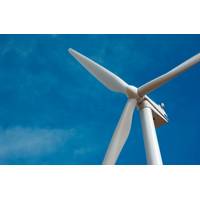Venezuelan state oil company PDVSA faces a $1.2 billion bond payment on Thursday that will test the ruling Socialist Party's resolve to pay its foreign debt despite a crippling economic crisis that has spurred widespread food shortages and malnutrition among children.
Markets remained optimistic that President Nicolas Maduro's government will make the payment, though investors expect delays. PDVSA last week struggled for days to deliver funds for a separate bond payment amid confusion over which banks were charged with transferring the money.
However, most economists say a default is increasingly likely in the medium term as Venezuela's collapsing socialist economic model has left the once-prosperous population destitute and led to deterioration of the OPEC nation's vital oil industry.
Maduro insists his government will pay all its debts but says it is a victim of an "economic war" led by opposition adversaries and fueled by U.S. sanctions that block Venezuela from refinancing its debt.
PDVSA's 2017N bond has rallied in recent weeks on market optimism that it will be paid down, driven by the completion, albeit delayed, of an $842 million principal payment on PDVSA's 2020 bond.
PDVSA bonds were down slightly in early trading on Thursday, while Venezuelan bonds were mixed, according to
Thomson Reuters data.
After Thursday's payment, Venezuela has no foreign bond maturities until the second half of 2018.
But in a sign of its financial desperation, Venezuela and PDVSA have been skipping interest payments since the start of October, racking up close to $750 million in pending coupons by repeatedly invoking 30-day grace periods.
Even if it scrapes together the funds to pay those down, it faces at least another $800 million in interest payments in November and December.
The country is struggling with shortages of basic products such as food and medicine, in part because hard currency for imports is being diverted toward Wall Street investors.
INVESTOR PROFIT, CHILD MALNUTRITION
Child malnutrition has reached the scale of a humanitarian crisis in four Venezuelan states, according to a May 2017 report by Caritas Internationalis, a Rome-based nongovernmental organization with links to the Catholic Church.
Government officials say the report is exaggerated for political reasons.
But the situation is a stark contrast to the oil boom years of late socialist leader Hugo Chavez, who spent generously on social welfare programs while borrowing profusely to keep spending at full tilt.
Venezuela's debt is the highest yielding of emerging market bonds measured by JPMorgan's EMBI Global Diversified Index , paying investors an average of 31 percentage points more than comparable
U.S. Treasury notes.
That is nearly double the spread on bonds issued by Mozambique, which is already in default, and more than six times the spread on bonds from war-
torn Ukraine.
Economists say Venezuela needs to lift currency controls, roll back nationalizations and halt the unchecked expansion of the money supply.
Maduro's government over the years has floated numerous proposals to create a free foreign exchange market but repeatedly backed down.
Short-term solutions to the debt burden have been limited by sanctions imposed by U.S. President Donald Trump, including blocking refinancing operations by prohibiting banks from buying new Venezuelan debt.
The sanctions are also likely to severely complicate efforts to restructure debt in the event of a default, as a number of top-ranking Socialist Party officials have been barred from conducting business with U.S. citizens.
Reporting by Brian Ellsworth












